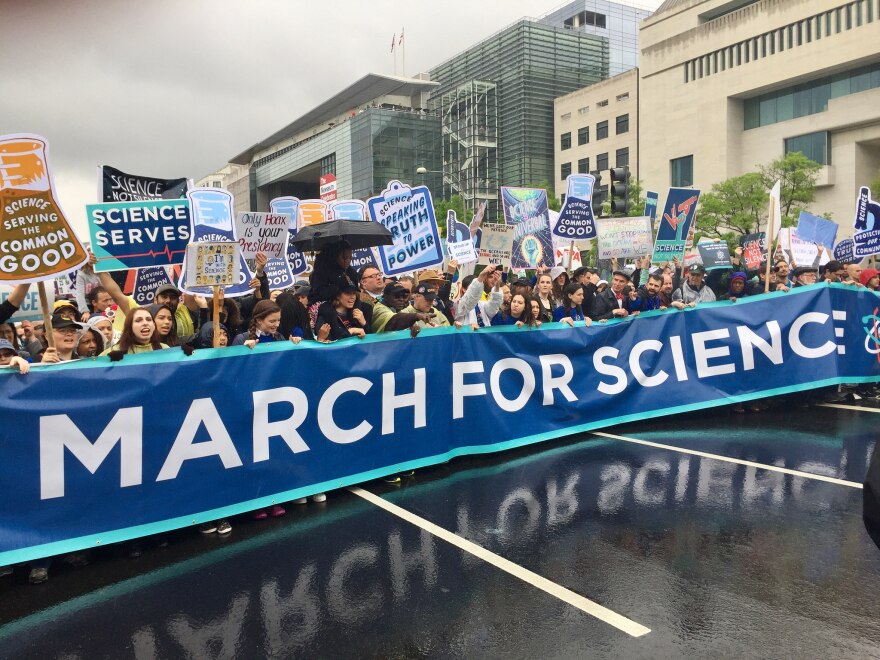For scientists it can be really tricky to figure out whether to protest, engage with legislators, or stay in the office. Sustainability commentator Bob Brecha compares visits to Capitol Hill with taking part in the People’s Climate March.
Even before Donald Trump was elected president, I was becoming more involved in science policy activities. My research over the last decade has been on energy and climate change, and it’s nearly impossible to separate the research itself from the implications it has for society. That’s not to say that the science is politicized, but we have to realize that where science leads us needs to be part of a larger societal conversation. I’ve made several trips to Capitol Hill with the Union of Concerned Scientists, a group that puts out very good, carefully-researched reports on energy and climate issues. UCS is also respected by legislators and sets up periodic lobbying visits and brings along scientists from across the country. Of course, one of the things I’ve noticed is that there are lobbyists, and then there are lobbyists. That is, somehow there seems to be a difference between a bunch of scientists discussing issues with a staff member, and the kind of lobbyist who is offering a large campaign contribution to a Senator or Representative.
Being on the Hill is interesting because the starting point is to look for common ground with legislators. It’s unlikely that a 30-minute visit from scientists is going to change the stance of a representative, but there are almost always areas in which they will appreciate the work that’s being done to protect the environment and create jobs through renewable energy. For those representatives who actively support clean energy and want to do something about climate change, they appreciate knowing that they have committed supporters from the scientific community. Compared to the digital shouting matches that happen on social media, sitting face-to-face with someone is much more fulfilling and productive. I’m grateful to the several Ohio Congressional offices we met with in April.
Sometimes you need to make your voice heard in a different way, though, in this case amplified by at least a factor of 200,000 on the streets of Washington, DC, and many more elsewhere. So this time my visits to Capitol Hill were followed by the People’s Climate March. It pays to remember that the Climate March was planned before the election, but took on a greater sense of urgency since the Trump administration is threatening to cut all research into climate change and funding for aid to countries impacted by climate change. The administration seems to be going back and forth on whether to withdraw from the Paris Climate Agreement that at least gets all countries, including China and India, heading in the direction of increased action to mitigate climate change.
It was inspiring to see so many different groups coming together to demand action. Not all of them would have agreed on every measure that needs to be taken, but they did agree that a lot needs to be done, and done soon. There were vegans, energy engineers, social justice groups and many others who wanted to make the message loud and clear that acting on climate change is a crucial matter for the next generation, and something that cannot be ignored in the name of business-as-usual with fossil fuels.
Constructive engagement with legislators can work when there is a set of ground rules by which everyone is playing. When basic facts of science are ignored, or worse, when the validity of decades-worth of scientific research is denied and disparaged by politicians, then other means are necessary.
Bob Brecha is a professor of Physics and Renewable and Clean Energy at the University of Dayton, and Research Director at UD's Hanley Sustainability Institute. Follow him on Twitter: @BobBrecha



